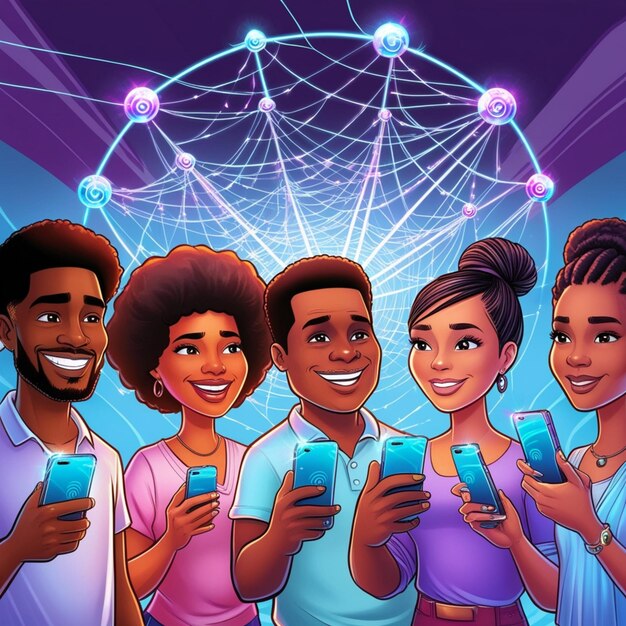AI-Powered Personalization: Reshaping Customer Journeys by 2025

By 2025, AI-powered personalization will fundamentally reshape customer journeys by creating hyper-relevant and predictive experiences, optimizing engagement and driving customer loyalty through data-driven insights and automation.
How will **AI-powered personalization reshape customer journeys by 2025**? Prepare to see a dramatic shift in how businesses interact with customers, driven by the power of artificial intelligence to understand and anticipate individual needs like never before.
The Rise of the AI-Powered Customer Experience
The customer journey is evolving rapidly. What once was a linear path has become a complex web of touchpoints. AI is rising to meet the demand to untangle this web. By 2025, we can anticipate advanced predictive actions and automation that are driven from in-depth data. This has never been more vital.
Data-Driven Personalization
AI algorithms excel at analyzing vast datasets to identify patterns and predict customer behavior. This capability enables businesses to deliver highly personalized experiences tailored to individual preferences, needs, and expectations.
Automation and Efficiency
AI automates many tasks within the customer journey, freeing up human agents to focus on more complex and nuanced interactions. This results in improved efficiency, reduced costs, and faster response times.

Here are key areas where AI will make a significant impact:
- Predictive analytics for personalized recommendations
- Chatbots for instant customer support
- Automated email marketing campaigns
- Dynamic pricing based on individual customer behavior
In essence, AI-powered personalization is poised to transform customer journeys by making them more relevant, efficient, and satisfying. This ultimately drives business success by fostering stronger customer relationships and increased loyalty.
Predictive Personalization: Anticipating Customer Needs
Traditional personalization reacts to what customers have already done. Predictive personalization looks to anticipate future behaviors. AI makes this a reality, offering a glimpse into customer thinking and purchasing patterns.
Advanced Algorithms
Predictive personalization relies on sophisticated AI algorithms that analyze historical data, real-time behavior, and contextual information to forecast customer needs and preferences. This enables businesses to proactively offer relevant products, services, and content.
Real-Time Insights
AI algorithms continuously learn and adapt based on new data, providing businesses with real-time insights into customer behavior. This allows them to adjust their personalization strategies on the fly, ensuring that they are always delivering the most relevant and effective experiences.
Consider these applications of predictive personalization:
- Suggesting products a customer is likely to buy based on their browsing history
- Offering proactive customer support based on predicted pain points
- Personalizing website content based on a customer’s current location and weather conditions
- Adjusting marketing messages based on a customer’s predicted lifetime value
By anticipating customer needs, businesses can create truly exceptional customer experiences that foster loyalty, drive revenue, and differentiate themselves from the competition.
The Role of Chatbots and Virtual Assistants
Chatbots and virtual assistants are set to play a critical role in AI-powered personalization. By 2025, these AI-powered conversational tools will be more intelligent than ever, and essential for effective customer service.
The main functions of chatbots:
- Answering frequently asked questions
- Providing product information
- Troubleshooting technical issues
- Guiding customers through the purchase process
Personalized Interactions
AI-powered chatbots can analyze customer data to personalize interactions in real-time. This includes addressing customers by name, referencing their past purchases, and recommending relevant products or services.
Seamless Integration
Chatbots can be seamlessly integrated into various customer touchpoints, including websites, mobile apps, and social media platforms. This ensures that customers can access personalized support and information whenever and wherever they need it.

Chatbot benefits:
- Instant customer support 24/7
- Reduced customer service costs
- Improved customer satisfaction
- Increased sales and revenue
Chatbots and virtual assistants are transforming customer journeys by providing instant, personalized support and information. This empowers customers to resolve issues quickly and efficiently, leading to increased satisfaction and loyalty.
Ethical Considerations in AI Personalization
As AI-driven personalization becomes more prevalent, the main ethical consideration is data security. Businesses must prioritize in using AI responsibly.
Transparency and Consent
Customers should be informed about how their data is being collected, used, and protected. They should also have the right to access, correct, and delete their data. Gaining customer consent is crucial.
Bias and Fairness
AI algorithms can perpetuate and amplify existing biases if they are not carefully designed and monitored. Businesses must ensure that their AI systems are fair, equitable, and non-discriminatory. AI needs to be regularly audited to check for bias and ethical risks.
Issues to consider in AI implementation:
- Data privacy and security
- Algorithmic bias
- Transparency and explainability
- Accountability and responsibility
Data Security
Businesses must implement robust security measures to protect customer data from unauthorized access, use, or disclosure. This includes using encryption, access controls, and regular security audits. This aspect also includes compliance with the latest data laws such as GDPR and CCPA.
By addressing these ethical considerations proactively, businesses can build trust with customers, protect their brand reputation, and ensure that AI-powered personalization is used for good.
Enhancing Loyalty and Advocacy
AI-powered personalization can enhance customer loyalty and advocacy. Personalized experiences lead to happier customers, and they are more likely to stay loyal to a brand. In fact, personalized advocacy is the surest way to grow your brand.
Tailored Rewards Programs
AI can be used to create tailored rewards programs that offer personalized incentives based on individual customer behavior. This motivates customers to engage with the brand more frequently and spend more money.
Proactive Engagement
AI enables businesses to proactively engage with customers based on their individual needs and preferences. This includes sending personalized birthday messages, offering exclusive discounts, and providing early access to new products or services.
Key loyalty drivers include:
- Personalized communication
- Exclusive offers and rewards
- Proactive customer service
- A sense of community
Personalized Content and Recommendations
By delivering personalized content and recommendations, businesses can keep customers engaged and provide them with valuable information. This helps to build trust and establish the brand as a thought leader in its industry.
Ultimately, AI-powered personalization enhances customer loyalty by making them feel valued, understood, and appreciated. This fosters stronger relationships, increased advocacy, and sustainable business growth.
Preparing for the Future of AI Personalization
AI-powered personalization is evolving. Companies that embrace these capabilities will be successful. Here’s what to plan for moving forward.
Investing in AI Infrastructure
To effectively implement AI-powered personalization, businesses need to invest in robust AI infrastructure. This includes data storage, processing power, and AI development tools. These tools let your team make changes and pivot quickly.
Training and Upskilling
Businesses need to train and upskill their employees to work effectively with AI technologies. This includes providing training on data analysis, AI algorithm development, and ethical considerations.
Areas of future development:
- Edge computing for real-time personalization
- Generative AI for personalized content creation
- Explainable AI for transparency and trust
- Federated learning for data privacy
Focus on Customer Centricity
AI-powered personalization should always be driven by a strong focus on customer centricity. This means prioritizing the needs and preferences of customers above all else. Understand the customer journey and create a seamless and value-driven experience.
By preparing for the future of AI personalization, you can drive better customer experiences and build better relationships.
| Key Point | Brief Description |
|---|---|
| 🤖 Predictive Analytics | AI anticipates customer needs for personalized offers. |
| 💬 AI Chatbots | 24/7 customer support with automated personalized advice. |
| 🔒 Ethical AI | Prioritizing data privacy and algorithmic fairness. |
| 🏆 Enhanced Loyalty | Tailored rewards and engagement increase customer retention. |
FAQ
▼
AI personalizes customer journeys by analyzing data to predict needs, offering tailored content, and automating interactions, ensuring each customer has a uniquely relevant experience.
▼
Ethical issues include data privacy, algorithmic bias, and transparency. Businesses must ensure consent, fairness, and protection of customer data to build trust.
▼
Chatbots provide instant, personalized support by analyzing customer data in real-time, offering tailored advice and information, and resolving issues efficiently, 24/7.
▼
Predictive actions anticipate customer needs based on data analysis, offering proactive recommendations, personalized content, and timely support, creating more valuable experiences.
▼
Future challenges include investing in infrastructure, training employees, and focusing on customer-centricity. Businesses must stay informed for best practices in data privacy and information.
Conclusion
As we look to 2025, **AI-powered personalization** stands poised to revolutionize customer journeys, creating experiences tailored, efficient, and remarkably engaging. By embracing AI responsibly, prioritizing ethical considerations, and focusing on customer-centricity, businesses can enhance loyalty and drive sustainable growth in the years ahead.





